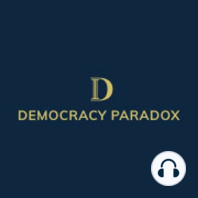37 min listen
John Matsusaka on National Referendums
ratings:
Length:
58 minutes
Released:
Oct 11, 2020
Format:
Podcast episode
Description
The United States has a long tradition of direct democracy through referendums dating back to the early years of the republic. Nearly every state today has some form of referendums or ballot initiatives. Yet the United States has never had a national referendum. John Matsusaka points out that from a comparative perspective, this is unusual. Nearly all other democracies have held national referendums, and many have made them a regular part of their political process. Matsusaka emphasizes tradition should not be an obstacle. He writes, “American democracy is not a static system created by the Founders, but a work in progress, an evolving set of practices that each generation has updated, largely by extending the scope of popular participation.” I share an optimistic conversation with John Matsusaka about the possibilities for direct democracy. There is a little bit of talk about Brexit and a few other countries like Switzerland are mentioned, but we mainly focus on the United States. John thinks the time is past due to introduce direct democracy on the national level. He writes in his book, “Although the Founders got some things wrong, they got many things right. We would like to know if omitting direct democracy was one of the things they got right, or one of their mistakes.”John Matsusaka is the Charles F. Sexton Chair in American Enterprise at the University of Southern California and the author of Let the People Rule: How Direct Democracy Can Meet the Populist Challenge. An economist by training, he works on topics related to political economy, direct democracy, corporate finance, and corporate governance. His article, “Corporate Diversification, Value Maximization, and Organizational Capabilities,” was awarded the Merton Miller Prize for most significant paper by the Journal of Business; and his article "Ballot Order Effects in Direct Democracy Elections" received the Duncan Black Prize for best paper in Public Choice.Thanks to Apes of the State for permission to use their tracks "The Internet Song" and "Bill Collector's Theme Song." You can find their music on Spotify or their Bandcamp. Thanks to James Schneider at Princeton University Press for my copy of Let the People Rule: How Direct Democracy Can Meet the Populist Challenge and for an introduction to John Matsusaka.Please visit my blog at www.democracyparadox.com. I have written 70 reviews of both classic and contemporary works of political science with an emphasis on democracy. This week I reviewed On the Political by Chantal Mouffe. Please visit the website and read my book reviews. And don't forget to subscribe to keep up with future episodes.Support the show (https://www.patreon.com/demparadox)
Released:
Oct 11, 2020
Format:
Podcast episode
Titles in the series (100)
Monologue on Hannah Arendt's The Origins of Totalitarianism by Democracy Paradox
